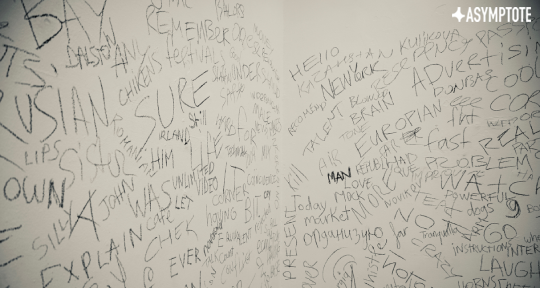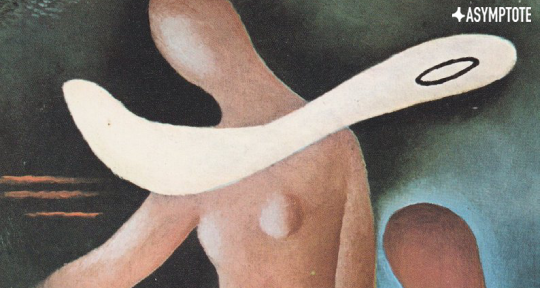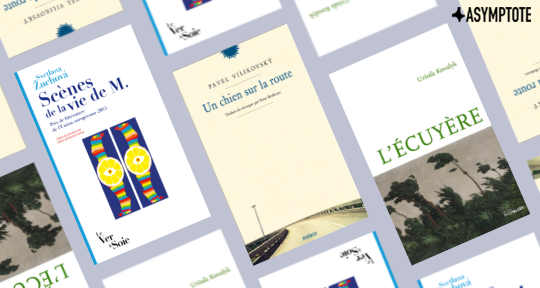On an evening in March this year, the door of an empty shop in Shoreditch, east London, opened for the first time in twenty-four hours. Inside, the white walls were covered with a jumble of apparently random words in different languages. This was not the work of kids practising their graffiti skills, nor a ritual summoning of dark forces by local satanists, but the culmination of a twenty-four-hour performance by two artists: Timothy Maxymenko and Iris Colomb, who had spent the time learning to communicate with each other through a simple set of rules before inviting the public to join a wider conversation about the work.
Maxymenko, who devised US2 and first staged a version of it in Kraków, is a Ukrainian artist based between London and Kiev; Colomb is a French artist, poet, curator, and translator. Between them, they speak several languages, with French, Spanish, Italian, Polish, Ukrainian, and Russian forming parts of their word-by-word dialogue, although English predominated.
The initial idea for US2 came from Maxymenko’s experience while on an artist’s residency in Montenegro in 2016, when he was trying to talk to local people, who speak a variant of Serbo-Croatian. Having a knowledge of Slavic languages made things easier—Ukrainian is his mother tongue and he is also fluent in Russian and Polish: “Sometimes I had to choose the same word in different languages and adjust it, until the person I was talking to noticed the similarity in the root of the word. The more you know languages from one group, the easier it is to understand the others by collecting them like a puzzle.” This made him wonder what would happen if two people who do not have a common language tried to communicate with each other for twenty-four hours and how many words they would need. “Then I began to think about how to create all the necessary conditions for the experiment.” READ MORE…





